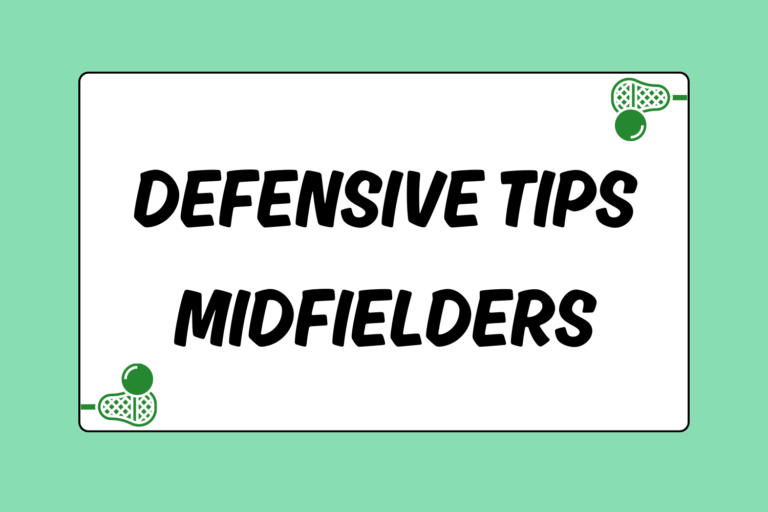In order for a lacrosse team to be successful, every player on the team needs to work together. Contributing to the team means interacting cohesively with teammates and being a positive influence on those around you. Players who fail to fit in or get along with teammates will quickly discover that their place on the team is not very secure. Suffice to say they shouldn’t expect much playing time either.
Playing a team sport means athletes need to be able to interact with teammates in a positive way, both on and off the field. Great teams normally have talented players, but there are other distinct qualities that separate them from the rest of the pack. Below are a few examples of such qualities.
What it Means to be a Teammate
Being a good teammate involves supporting your comrades and sharing the same goals with them. Selflessness is the best quality a teammate can have. In the end, success in sports is measured by how your team finishes — not individual efforts. When a team plays well, each and every player get noticed and recognized.
Share the Same Objective
Every player on the team has to be on the same page as far as what they want to accomplish and how they plan to get there. Players with personal agendas will inevitably bring the team down and hold them back from reaching their full potential. Ultimately, you can’t be concerned with personal statistics. Your goal and assist totals will look nice on paper at the end of the season, but coaches really care about how you fit in with the team and embrace your role.
Get Along with the Staff
Another aspect of being a positive team member is your relationship with the coaches. Trust that coaches are giving you the right information to help you reach your potential as a player, and that the staff has identified the right role for you on the team.
It’s okay to question a coach’s decisions, but you must do so in a respectful and positive way. Talk to your coach after practice, and calmly tell him that you think you’re being underutilized or perhaps miscast in the wrong role. No matter what your coach tells you though, make sure you respond positively and act accordingly. Arguing with your coaches only hurts your cause. They need to know that you’re on the same page with them.
Being a Better On-field Teammate
Whether in practice or a game, great teammates exude certain qualities that make them stand out above the rest of the team. Communication is absolutely vital for any great squad. Openly discuss your team goals, and make your voice heard during the game as well. You might save your teammate from a defender that is closing in from behind and set up a goal scoring opportunity. In addition to communicating on and off the field, move without the ball and try to be a threat at all times.
Talk to Your Teammates
There are a few common calls lacrosse players can make to one another on the field. These calls are normally directed towards a teammate that has possession of the ball, but some apply to other situations as well. These calls include:
- “Watch your back!” or “man on!” warns the ball-carrier of an approaching opponent that he cannot see.
- “Ball down!” lets teammates know the ball is on the ground.
- “Release!” alerts teammates that a ground ball has been picked up and secured.
- “Here’s your help!” let’s a teammate know you’re open and ready to receive a pass.
- “Check stick!” alerts defensive players that a pass is in the air en route to an offensive player, and that the defenders should check down on opponents’ sticks to prevent a catch.
While these aren’t the only calls a player needs to make on the field, they are among the most important. Be sure to communicate loudly and clearly, so that every teammate on the field can hear and understand what you’re saying.
Mental Edge
Be aware of how you talk to teammates in pressure situations. You have to be as positive as you can, while still maintaining a high intensity level and commitment to winning.
If a teammate is having a tough time in practice picking up a skill or executing a drill, calmly explain to them how they can pick it up and play better. Don’t be condescending, but make your point in a way that shows your teammate you have a vested interest in their improvement and contribution to the team.
Don’t Stop Moving
The best offensive players move without the ball. Whether you play attack or midfield, being a good cutter and having the ability to use open space will get you a ton of looks from teammates. Playing off the ball opens up more goal-scoring opportunities for teammates, and shows coaches that you’re fine with your role on the team.
Off-field Chemistry
Getting to know your teammates off the field strengthens your camaraderie during a game and develops team chemistry. Go to the movies together, eat meals as a team, and work out together. It’s easy to respect a player that invests the majority of their time to the team, both on and off the field. Get gym memberships together and create a lifting plan where you can work out as a team.
No matter what day of the week your teammates decide to practice, make sure you’re right there with them. Same goes for wall work or speed training.
You don’t have to be buddy-buddy with everyone on the team, but definitely make an effort to reach out to the individuals that aren’t fitting in right away. Being comfortable around your teammates and trusting one another plays a big part in forming a cohesive team.
The Common Cause
The key to being a great teammate is to show people that you have a winning attitude. Committing yourself to a team-first attitude shows your squad that you deserve their respect, and your attitude will often rub off on them in positive ways. Becoming friends with teammates off the field also does wonders for your on-field chemistry. Trusting each other and believing in one another are key elements to winning games and having fun on the field. Do your best to bond with the boys and your team will reap the rewards!





